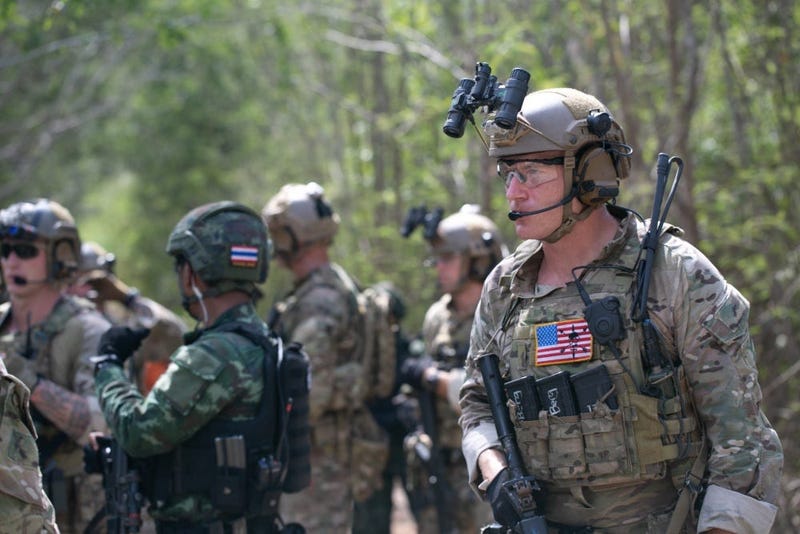Last week the Army debuted thier new strategy for Army Special Operations units which includes Special Forces, Rangers, PSYOP, and Civil Affairs all of which likely dovetails with Army Special Mission Units as well. The strategy shifts away from the focus that Army SOF (Special Operations Forces) units have had throughout the War on Terror which was placed on non-state actors, namely terrorist organizations like Al Qaeda. The War on Terror was in many ways characterized by both conventional and Special Operations units operating out of secure battlefield enclaves called Foward Operating Bases (FOBs) in Afghanistan and Iraq from which Army SOF would prosecute so-called High-Value Target strikes aimed at capturing or killing key enemy leaders.
The recently released strategy pivots away from this model stating that, "we are also adapting to compete against Russia and China, and preparing for war as part of the joint force. We will shift from a mindset of inhabiting secure forward operating bases to one of surviving and thriving in large-scale combat operations." It is important to note that both Russia and China are mentioned as adversaries that Army SOF wishes to counter. Up until a few years ago, it was unlikely that China would have been mentioned by name or so prominently in documents like this. The strategy emphasizes not just attacking non-state entities but also countering adversarial states themselves.
"It’s a shift that many, perhaps most, in the US military have enthusiastically embraced, since it places conventional warfighting at the forefront of priorities again—as it was in the 20th Century, before 9/11 ‘screwed’ everything up," analyst and former Air Force Special Operations pilot
John Robb told Connecting Vets. Robb points to a key takeaway in the strategy document where it says, "America’s adversaries avoid provoking a conventional military response to fracture our alliances and win without fighting. They advance their interests by avoiding U.S. strengths, creating ambiguity, and weaponizing information at scale." This means that adversarial nations can intentionally operate just below the threshold which would trigger an attack from the US military, so they fight conflicts that are defined by their irregular and unconventional nature.
As long as enemies utilize this strategy, America will have to continue to rely on unconventional warfare, psychological operations, and shrewd diplomacy, not to mention partnerships with host-nation counterparts.
While Robb points out that the document is directionally correct, there is one problem.
"The only potential fatal flaw is that it doesn’t push this thinking forward far enough," he said. "We are already in a guerrilla information war, and it’s being fought at a global scale, in the online domain. Moreover, everyone is a participant. From the great powers expanding their networks or disrupting the networks of their adversaries to open source weaponized social networks that have proven themselves capable of toppling governments, in the street and the ballot box."
To this end, Robb says that every Army Special Operations mission needs to work towards a larger end state, one that is harmonized with other US government efforts all within a state of both physical and information warfare.
"To win in this environment, every operation or engagement needs to advance the social, economic, political, etcetera, goals of the online campaign currently underway. If not, it didn’t do its job," Robb explained.

